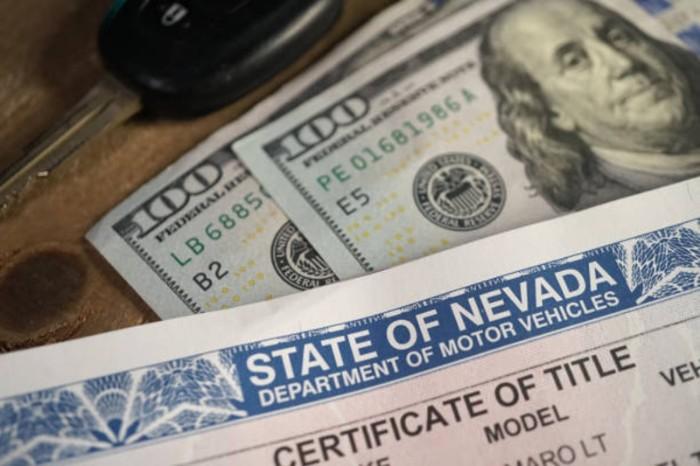Actual Cash Value (ACV) is a term used in insurance policies to describe the value of an insured item or property when it was damaged or destroyed. It is calculated as the replacement cost minus depreciation, making ACV a key factor when determining how much coverage you will receive from your insurer after filing a claim. By understanding what ACV means and how it works, you can better prepare for unexpected events that could damage your property, such as fires or floods. Knowing about ACV can help ensure that you have sufficient coverage and are not left with inadequate compensation in case of an accident.
What Is Actual Cash Value (ACV) In Insurance?

Actual Cash Value is an important concept to understand regarding insurance. It refers to the money you would receive from your insurer if you filed a claim for a damaged or destroyed item. The ACV is calculated as the replacement cost of the item minus any depreciation due to age, wear, and tear, or other factors. For example, if you had a three-year-old laptop that cost $500 new and was destroyed in a fire, the ACV may be far less than the original purchase price due to depreciation.
How is ACV Calculated?
To calculate the ACV of an item, you must first determine its replacement cost. This is the amount of money it would take to buy a new thing that is identical or similar to your damaged one. After determining this number, you must subtract any depreciation to arrive at the Actual Cash Value. Factors such as age, wear and tear, or obsolescence may result in the ACV being far below the item's original purchase price.
Why Is Understanding ACV Important?
It is essential to understand how insurance companies calculate Actual Cash Value when assessing your claim for damage or destruction of property because it can make a big difference in the amount of money you receive from your insurer. By understanding ACV and its implications, you can ensure adequate coverage for the items you own. This will help ensure that if an accident does occur, you are not left with inadequate compensation for the damage to your property.
Benefits of Knowing and Understanding ACV

Here are some benefits of understanding ACV:
1. It helps you understand how much insurance coverage you need for your items.
2. You will know what amount to expect if a claim is filed.
3. You can ensure that you are adequately compensated for the loss of an item due to damage or destruction.
4. You will have peace of mind knowing that your insurer has considered any item depreciation when determining its value.
5. You can be better prepared for unexpected accidents or disasters damaging your property.
6. You can ensure you have enough coverage for all your items.
Examples of How ACV Can Impact Your Insurance Policy
Here are some examples of how ACV can impact your insurance policy:
1. If you have a high replacement cost item that is destroyed, the ACV will be much lower than the original purchase price due to depreciation.
2. If you file a claim for damage to an item and the ACV is lower than the deductible on your policy, you may not receive any payment from your insurer.
3. If an item is destroyed and its ACV is higher than the amount of coverage you have for it, then you may receive only a partial payment from your insurer.
4. If an item has been updated or improved since it was initially purchased, the ACV may not reflect those changes, and you may receive less compensation than if it had been adequately insured.
Conclusion
Actual Cash Value (ACV) is an important concept to understand regarding insurance policies. It is calculated as the replacement cost of an item minus any depreciation due to age, wear and tear or other factors. Knowing about ACV can help ensure that you have sufficient coverage and are not left with inadequate compensation in case of an accident. With a better understanding of ACV, you can be better prepared for unexpected events that could damage your property.
FAQs
Q. What is ACV in insurance?
A. Actual Cash Value (ACV) is a term used in insurance policies to describe the value of an insured item when it was damaged or destroyed. It is calculated as the replacement cost minus any depreciation due to age, wear, tear, or other factors.
Q. How is ACV calculated?
A. ACV is calculated by determining the replacement cost of an item and then subtracting any depreciation due to age, wear, and tear, or other factors.
Q. Why should I understand ACV?
A. Understanding how insurance companies calculate Actual Cash Value when assessing your claim for damage or destruction of property is essential because it can make a big difference in the amount of money you receive from your insurer. By understanding ACV and its implications, you can ensure adequate coverage for the items you own. This will help ensure that if an accident does occur, you are not left with inadequate compensation for the damage to your property.
Q. What are some examples of how ACV can impact my insurance policy?
A. Examples of how ACV can affect an insurance policy include: if you have a high replacement cost item and it is destroyed, the ACV will be much lower than the original purchase price due to depreciation; if you file a claim for damage to an item and the ACV is lower than the deductible you have on your policy, you may not receive any payment from your insurer; and if an article has been updated or improved since it was initially purchased, the ACV may not reflect those changes, and you may receive less compensation than if it had been adequately insured.



